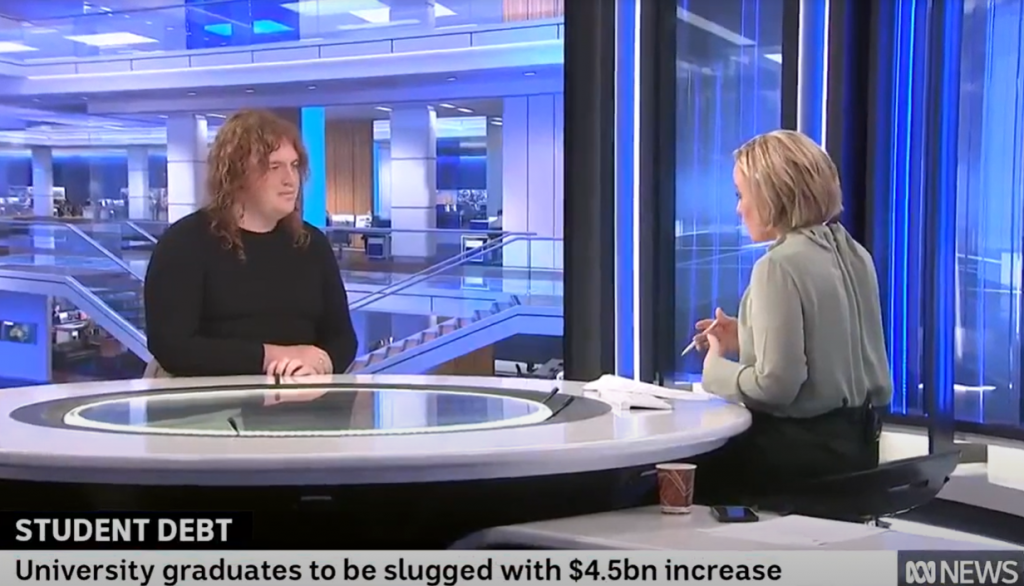

Today the NUS appeared in front of the Senate Education and Employment Committee to advocate to freeze HECS/VET Loan indexation while inflation is elevated. It is outrageous that during a cost of living crisis the Australian Government would profit billions of dollars off of student debt.
Student debt has reached levels never seen before. According to Australian Tax Office (ATO) data, there were more than 3 million people with an outstanding HECS-HELP debt in 2021-22, totalling more than $74.3 billion. This is a 191% increase in the total amount of student debt in Australia in the 10 years since 2011-12. In terms of the size of individual student debts, 72% of people with HELP debts in 2021-22 owe over $10,000, compared to only 47.51% in 2005-06.
We are seeing greater numbers of students and graduates struggle to pay off the debts accrued in their studies. With the predicted rise of at least 7% in HELP debts this year, we can expect to see the number of students with high levels of student debt greatly increase, at a time when wages are not keeping up with the fastest-growing inflation rates since before the 1990s recession.
Indexation maintains the real value of the loan by adjusting it by the consumer price index (CPI). The indexation figure is calculated each year after the March CPI is released. It is based on financial figures collected by the Australian Bureau of Statistics over the previous 2 years.
With CPI running at under 2% up until 2020 this resulted in an increase of $460 pa on the average HECS loan. CPI is now much higher than that, reaching 7.8% by December 2022.3 This will result in the average HECS loan rising by $2,900 (13%) over the next 2 years.
Average HECS debt – $23k
Estimate June 2023 Inflation – 6.25%
2022 Average HECS Increase – $1,500
As a result, a graduate on a $60,000 pa entry-level position will pay ~2.5% of their salary, or $1,500 in 2023 as a HECS repayment. These repayments will be completely wiped out by inflation. The government borrows money for these loans at the RBA cash rate which is currently 3.35% (Feb 20234) and forward loans this money to students at CPI. This will result in the Federal Government profiting $670 (2.9%) next year on the average loan, while graduates on low incomes are hit with the cost of living increases.
Read the Article in the Austalian

